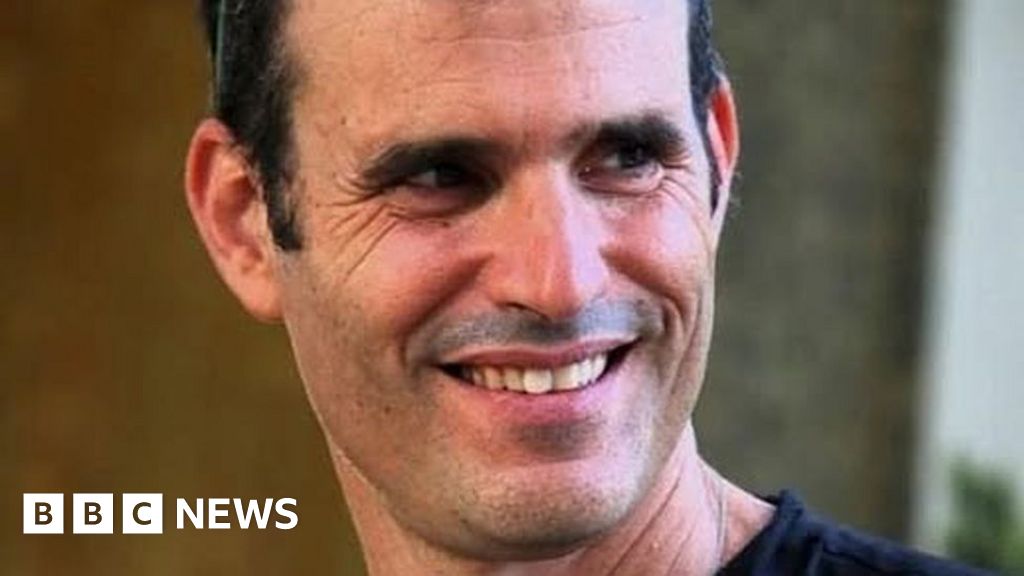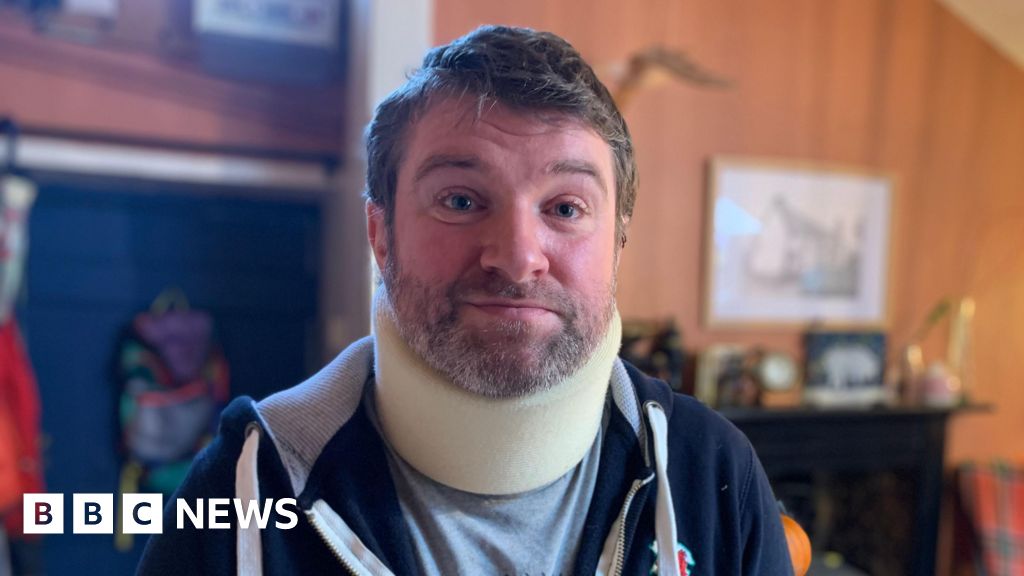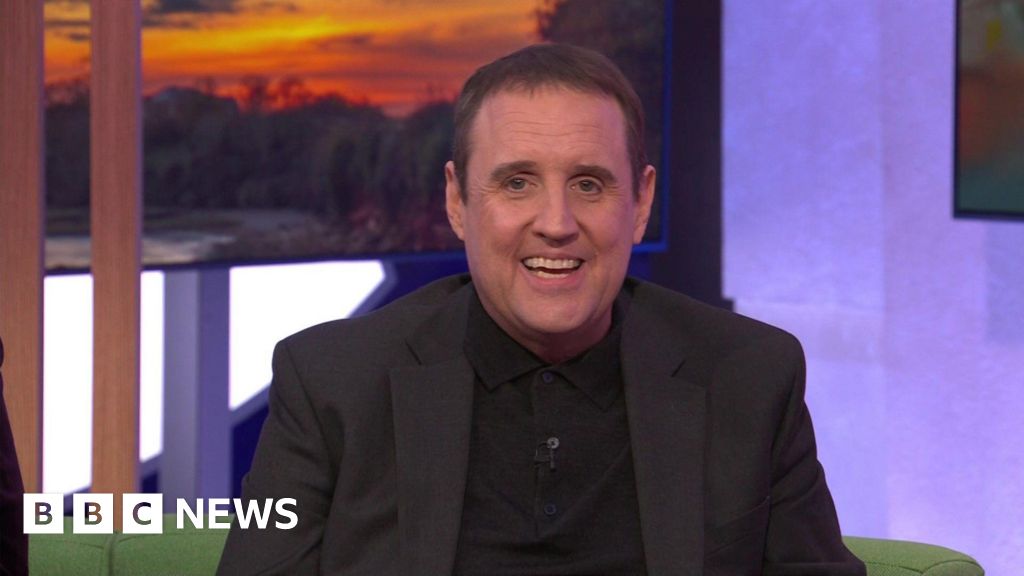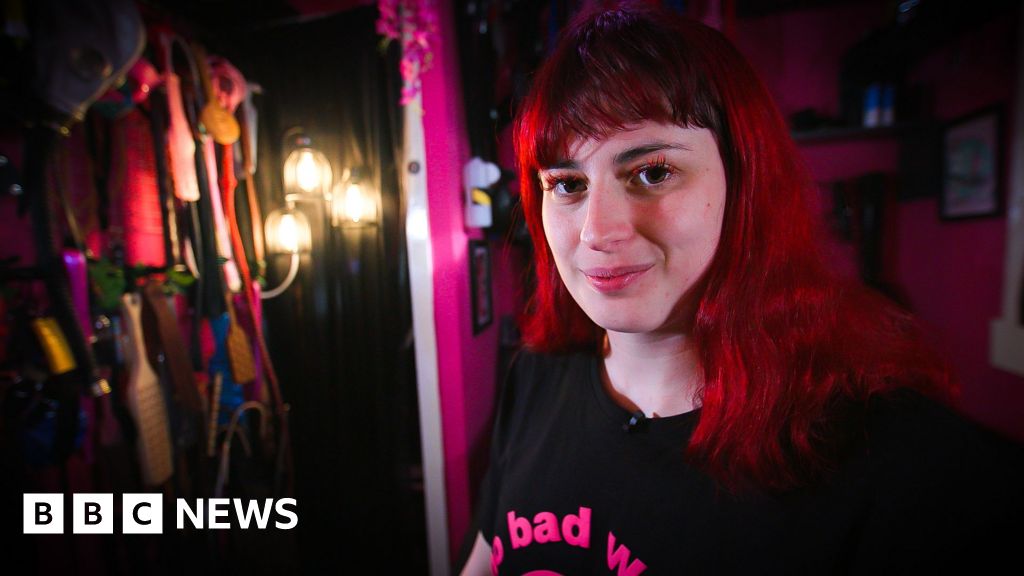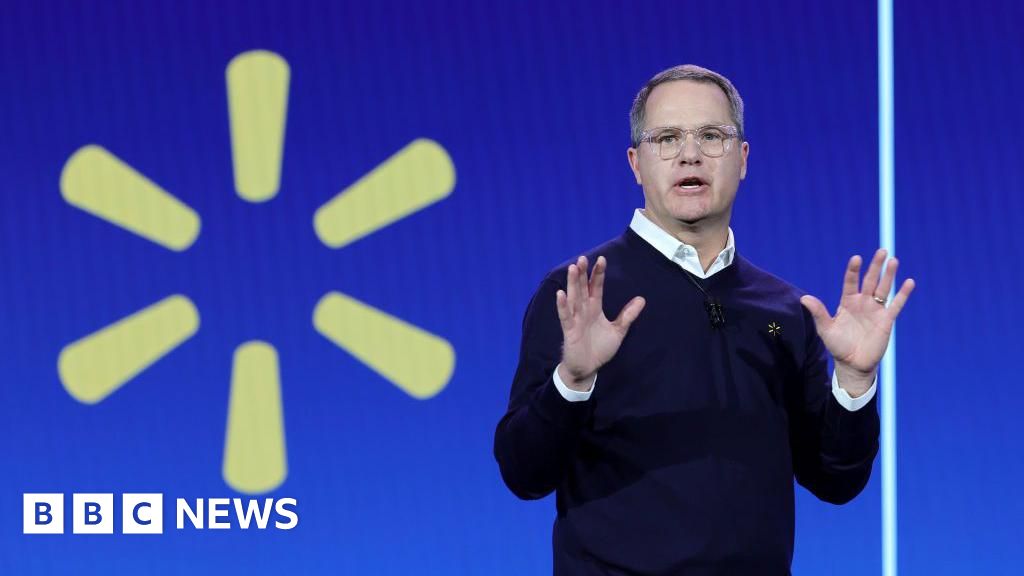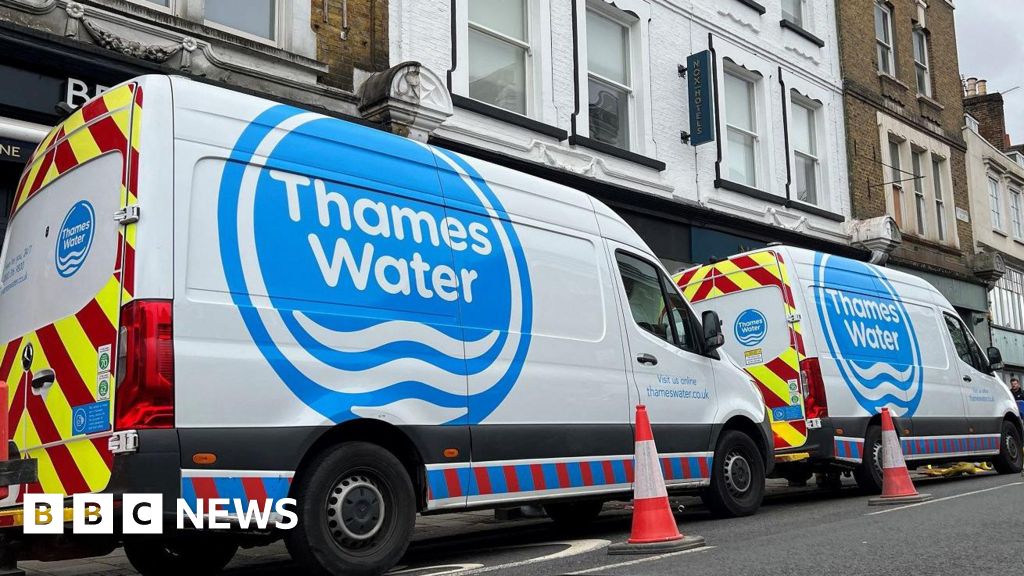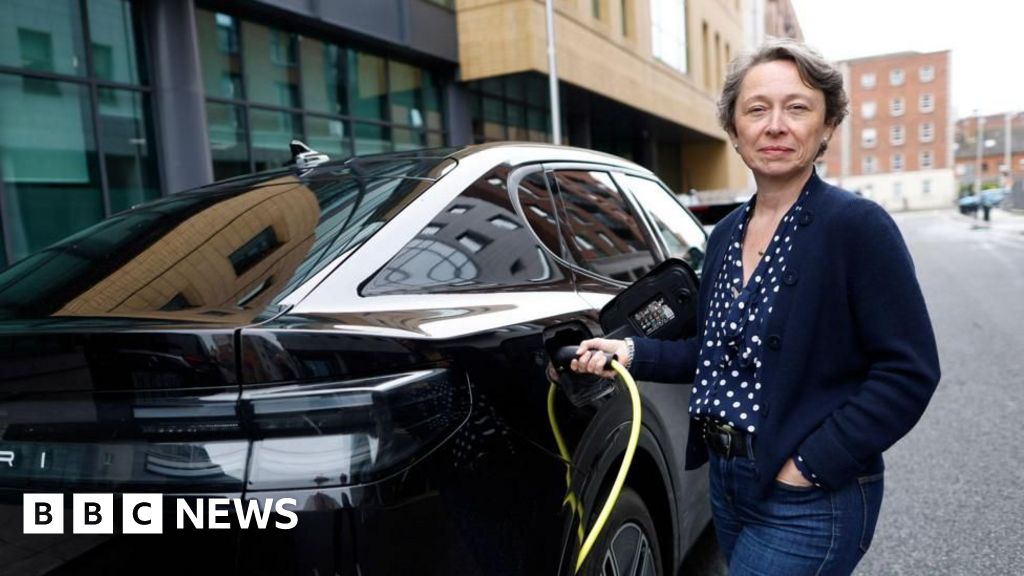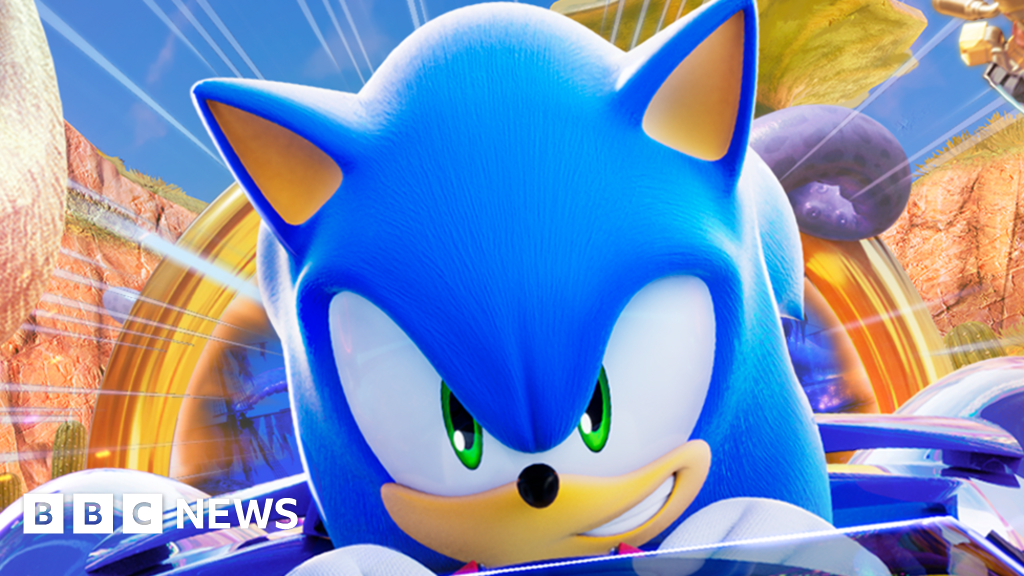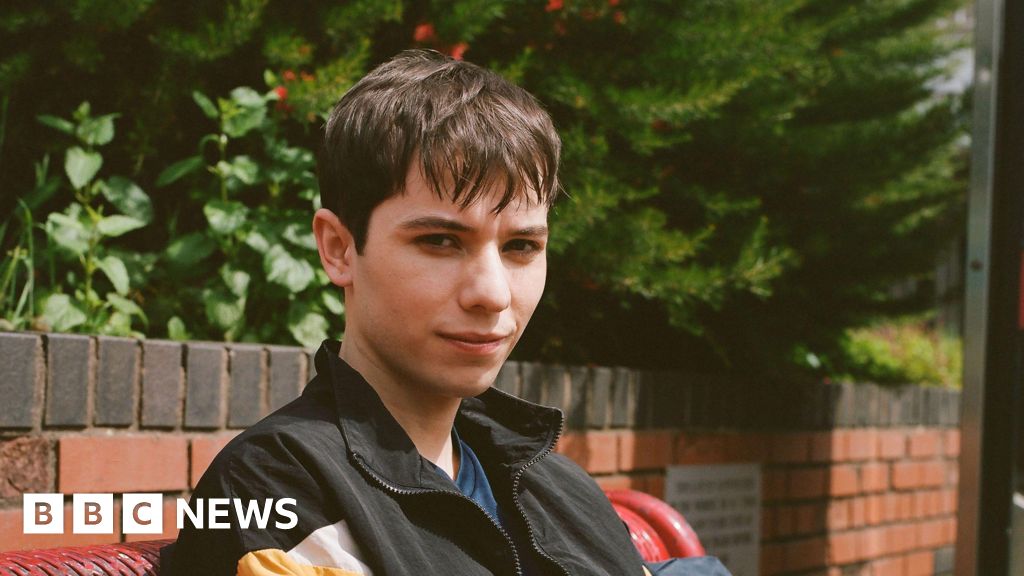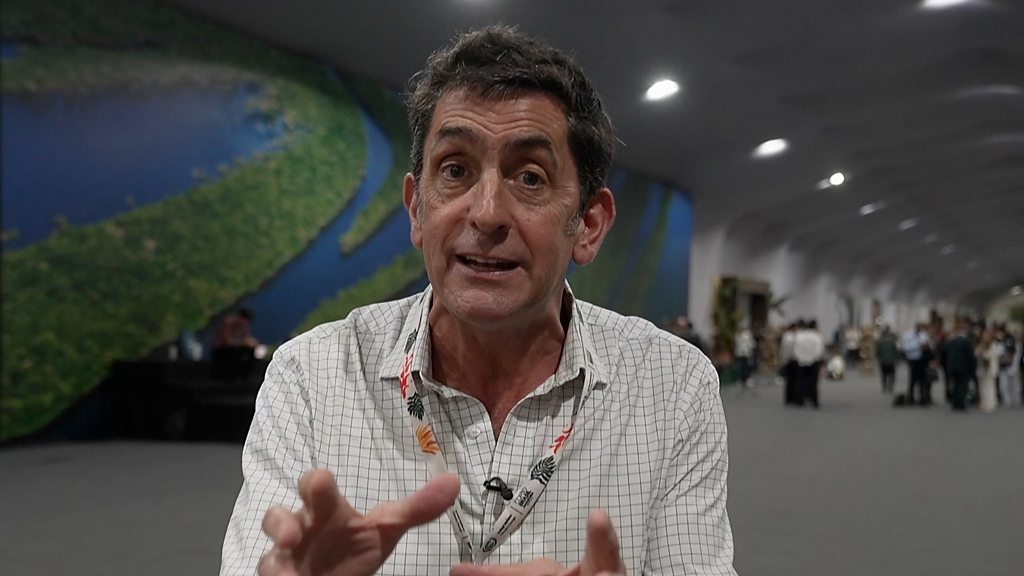Peter Gillibrand and
Tom RichardsonBBC Newsbeat
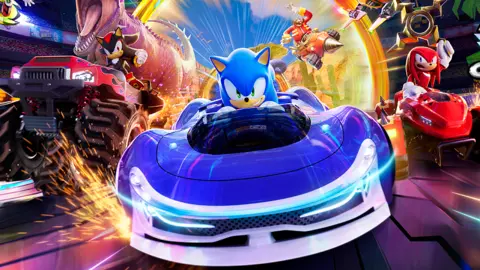 Sega
Sega“Sega does what Nintendon’t”.
The slogan, from the 1990s, is one of the most famous in video game history.
It was a time when the bitter rivalry between the two Japanese game companies was at its fiercest.
Today, that relationship has softened.
You can play Sonic games on Nintendo consoles and the characters have even appeared in games together.
But is Sega trying to restart the beef?
The advert for its latest release, Sonic Racing: CrossWorlds, closely resembles a 1992 commercial that claimed superiority over Nintendo.
And in August, the man in charge of the mascot character appeared to take a pop at Mario Kart from the stage of this year’s Summer Game Fest.
But when BBC Newsbeat catches up with Sonic Team head Takashi Iizuka, he isn’t naming names.
“So I didn’t call out any specific title, and there’s a lot of racing games out there,” he says.
The idea that Sega is seriously trying to pick a fight with Nintendo is unlikely, according to Chris Dring, editor-in-chief of The Games Business.
He suggests Sega is “having a bit of fun” and points out that its new game, which is available across different consoles and on PC, is still likely to sell the most copies on Nintendo’s Switch.
Sega is clearly confident in its new game, he says, but there is “an element of leveraging the popularity of Mario Kart”.
“The Sonic versus Mario talk very much benefits Sonic,” he says.
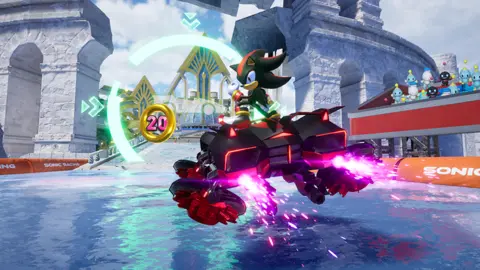 Sega
SegaThe bigger challenge for long-running titles is attracting new players and going up against the new giants of the games industry.
Fans stick with titles such as Fortnite, Roblox and Call of Duty – so-called “live service” games that offer a revolving, ever-updating selection of content – for months if not years on end.
With CrossWorlds, there are plans to add a revolving cast of characters and offer players a “season pass” add-on to access certain extras – a feature seen in many online titles.
Mr Iizuka says the goal is to “make sure we’re refreshing the game every month and to really make it a fun experience to constantly come back to”.
It’s a common practice, and one game companies are using to keep players engaged as development time and costs keep rising.
“There used to be a time where you released a new game every year,” says journalist Chris.
“That’s not how things work anymore in video games, they often take five years-plus to make.”
Chris says rolling content drops are a good way to maintain interest once the hype of a big launch has faded.
And it makes sense to “embrace” the modern gaming landscape, he says.
For example, he says one of the most popular recent Sonic releases was an official game within Roblox.
Alongside the successful movie tie-ins, Chris says, it’s a way of “introducing Sonic the Hedgehog to those players and then hopefully convincing them to step across and play something like CrossWorlds”.
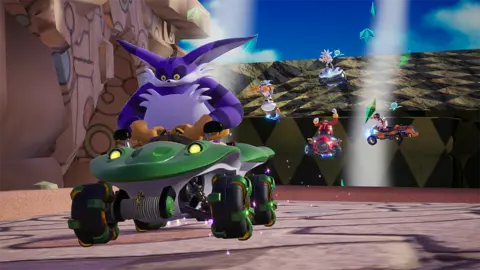 Sega
SegaVideo game companies have been leaning on remakes and remasters of older titles in recent years.
The trend had sparked hope among die-hard Sega fans that remakes of the Sonic Adventure series – among the character’s first 3D outings – would also be coming.
But Mr Iizuka insists it’s not something his team will be looking at, as new technology enables them to create “richer, more complex, more interesting worlds”.
“Instead of using all that time and energy to remake a game that people have already experienced, we could make a brand new game instead,” he says.
“I think the team is really interested in taking that same amount of time and energy and effort to really bring a new experience to the players.”
The stance is in line with Sega’s approach to some of its other retro titles.
It’s currently developing new entries in long-dormant series such as arcade racer Crazy Taxi, hack-and-slash battler Golden Axe and the inline-skating-themed Jet Set Radio.
The first of these revival projects, ninja adventure Shinobi: Art of Vengeance, slashed its way on to some critics’ game of the year shortlists when it came out last month.
In the case of Sonic, journalist Chris points out that it doesn’t make sense to have your flagship development team working on remakes.
But he doesn’t rule out the possibility entirely, especially as Sega has form for re-releasing titles from the character’s back catalogue.
“If they wanted to, if they don’t have it in their capacity as a team, they can always outsource it to lots of talented people who are big Sonic fans that could do it justice,” he says.
But, he adds, Sega doesn’t want to be seen only as a retro company.
“There’s a balance between doing new things and doing old things in order to make sure that they’re a company that’s looking ahead and not just being a company that’s relying on its past,” he says.








